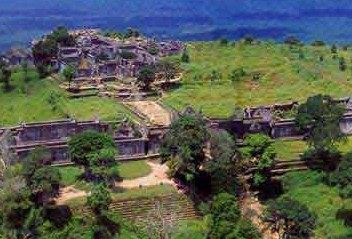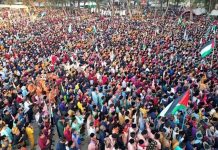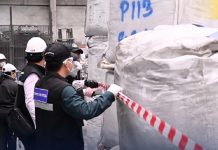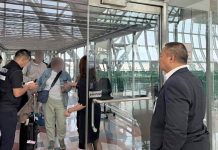BANGKOK, July 14 — A Thai delegation led by outgoing Foreign Minister Kasit Piromya will leave Bangkok Saturday for The Hague to be present at the International Court of Justice (ICJ), the UN’s highest court, on Tuesday (July 18) when it is scheduled to issue clarifications on Cambodian border measures, according to the Thai Foreign Ministry spokesperson.
The ICJ is set to rule at Cambodia’s request to issue provisional measures to force Thailand to withdraw troops from the disputed area near Preah Vihear temple and banning military activity there following sporadic deadly clashes between troops of both countries.

A public sitting would take place at the Peace Palace in The Hague and the President of the Court, Judge Hisashi Owada, will read the court’s order.
Thani Thongphakdi, Director-General of the Department of Information and Foreign Ministry spokesperson, told the media that Mr Kasit and his entourage, including Chavanond Intarakomalyasut, secretary to the foreign minister, Theerakul Niyom, Permanent Secretary for Foreign Affairs, Ittiporn Boonpracong, Director-General of the Department of Treaties and Legal Affair and representatives from Royal Thai Army Survey Department, the Office of the Attorney General and Fine Arts Department will leave Thailand July 16 for The Hague.
The court is scheduled to announce its decision on July 18 at 10am local time or 3pm in Thailand.
Mr Thani said he could not predict the direction of the order but it was expected to be in one of the three prospects — the court will issue provisional measures as requested by Cambodia, it will decide that it has no jurisdiction and drop the case, or the court may order both Thailand and Cambodia to jointly carry out actions.
In 1962, the court ruled that Preah Vihear temple belongs to Cambodia. Thailand complied with the ruling but argued that the verdict covered only the sandstone ruins themselves while the area around it belonged to Thailand.
Since then, both sides have built up military forces along the border and periodic clashes have occurred, resulting in the deaths of troops and civilians on both sides.
On April 28, Cambodia asked the ICJ to interpret its 1962 judgment to establish if the land in the temple’s vicinity also belonged to it. The application was accompanied by its urgent request to indicate provisional measures.




